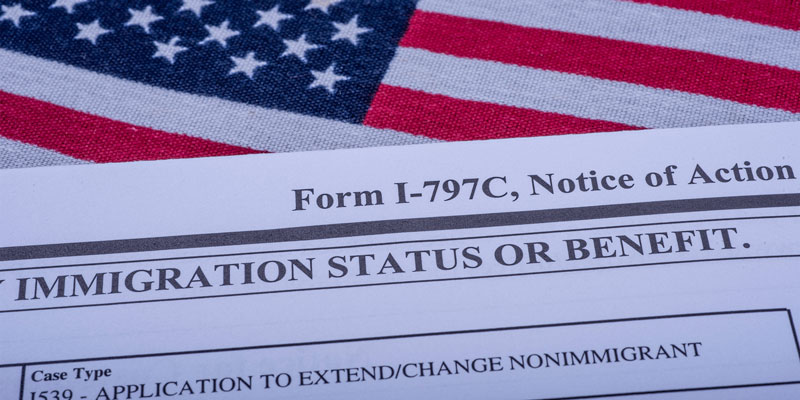
In this article, you will learn about the following:
An H1B visa is a golden ticket for all foreigners aspiring to work in the US. Issued by the United States Citizenship and Immigration Services, the H1B visa has an initial validity period of three years.
Among the reasons for its popularity is that the H1B is a Dual Intent visa. Fortunately, as per the USCIS norms, the validity period can be extended for an additional three years, which is what most foreign employees want. Six years is the maximum H1B validity period, during which some of the holders apply for Permanent Residency or Green Card. There are also other options to remain in the US on a nonimmigrant or an immigrant visa. Some may leave the US for their respective native countries or pursue various paths.
Our main topic of discussion is the H1B visa extension. The USCIS allows nonimmigrant employees to apply for an extension during the final six months of the initial 3-year period. If you wish to stay in the US and continue working for your US-based employer, you must file an extension petition. If not, you risk falling "out of status," which means you can no longer stay in the US because you have lost your legal basis to remain and work in the country.
So, what should you do to avoid getting yourself into a serious situation that could jeopardize your extension approval? Read on for more information.
The procedures for the H1B extension are very similar to the initial application process. You must:
H1B extension requests maybe filed under Regular Processing or Premium Processing. The next step involves submitting the necessary documents, the most crucial of all H1B visa extension requirements.
Also Read: H1B Extension: How it Works for H1B Holders
To successfully complete your visa extension process, you must submit the following extension documents:
To demonstrate your evidence of employment, you will need:
Your employer also has a list of documents to submit to apply for the extension on your behalf. This list includes:
Submission of all the above-mentioned documents is a must if you want the processing of your extension to be smooth and hassle-free. The USCIS takes eight to twelve weeks to process your documents and permit the extension.
If you are single and unmarried, all you need to do is obtain an extension and continue working in the US. However, things are slightly different for H1B holders with spouses and unmarried children under 21 years. Known as dependents, an H1B holder's spouse and children possess H4 visas. How does the H1B extension affect them? Let's find out.
In the USA, the H4 visa status is tied to the H1B visa owner's status. In other words, if the H1B holder gets a visa extension, so will their H4 dependents (both spouses and children). Therefore, it goes without saying that if the H1B holder's status is terminated or revoked, so does the dependent's. The USCIS also allows the H4 extension upon expiration, provided they haven't committed any crimes or violated the visa regulations.
Please note that H4 renewal does not happen automatically along with H1B. All H4 holders must file Form I-539 and the H1B extension application. Along with the visa application, they should also submit proof of relationship with the H1B holder.
It is always wise to discuss your H1B extension with your employer when you are in your third and final year of the first H1B period. As a worker under a US-based employer, the extension could mean a big change in your career. Your employer may want to go ahead with the extension or make another decision.
The H1B extension is one of the easiest processes compared to the other filings made each year by non-immigrants. However, in case you have any queries, please visit TechFetch H1B for more information. We are well-versed with the H1B visa intricacies, and we can help you understand the details to expedite your visa processes.
**Disclaimer: All information regarding the H1B visa process is subject to change. Please refer to the USCIS official website for the latest details.